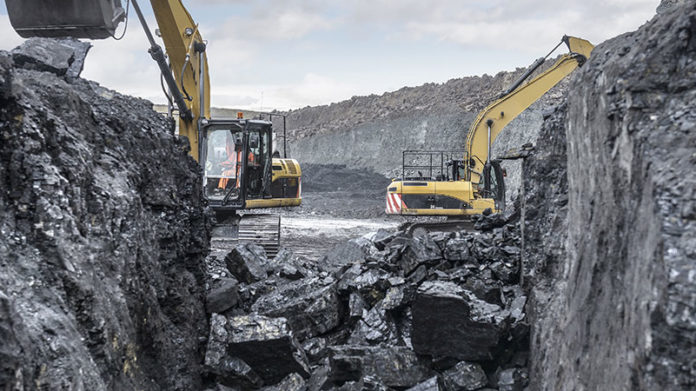
SOUTH32 had lost R10bn in cash in the last four years owing to an underwater coal sales agreement (CSA) with Eskom’s Duvha power station and would shut its 27 million tons (Mt) a year South African Energy Coal (SAEC) business unit if it failed to renegotiate it.
“Anyone in our situation would say this is not tenable; you cannot continue to support a significantly loss-making business for another 10 years,” said Mike Fraser, COO of South32 in an interview.
South32 would “… have to take the next steps which are closure or business rescue” of SAEC, he said. “You can’t just accuse South32 of walking away from its commitments which I know is a narrative here”.
Seriti Resources, a privately-owned coal producer led by former Minerals Council president, Mike Teke, successfully bid to acquire SAEC in 2019 after South32 decided it wanted to quit the business, partly because shareholders didn’t like its exposure to thermal coal.
But in recent months, the transaction has come in for heavy criticism, including an allegation by an anonymous source that taxpayers were ultimately paying the price for South32’s decision to quit the country.
The source said that Eskom, which is government-owned, is struggling to pay interest on some R450bn in debt. It therefore can’t afford a doubling – to about R550 per ton – in the Duvha CSA, the level at which South32’s renegotiation is pitched.
There’s also speculation that in entertaining South32’s request for improved coal price, Eskom is opening the door to similar proposals by other coal suppliers. “It has been discussed,” said a market source with knowledge of another coal supplier wanting better terms from Eskom.
Eskom spokesman, Sikonathi Mantsantsha, said he wasn’t aware of any such approach.
South32 supplies about 8.5Mt in coal a year to Duvha which is mined at its Ifalethu operation, part of Woverkrans Middelburg Complex – a domestic and export colliery in Mpumalanga province. South32 has a 91% stake in SAEC.
Should South Africa’s National Treasury fail to support a higher coal price – a prerequisite for Eskom’s formal acceptance of the new CSA – then the sale of SAEC to Seriti would also fail. “It’s one entity, so you can’t take the Ifalethu and the Duvha CSA and put that into business rescue because the entire entity is committed on this contract. It takes the whole entity down,” Fraser said.
“Seriti would be required to guarantee the operational obligations of Ifalethu Colliery under the Duvha CSA until December 31, 2024,” said Seriti’s Teke in an emailed response to questions. “Seriti doesn’t enjoy the luxury of simply being able to close the mine, nor electively terminate the contract.”
POLITICAL PRESSURE
Teke has been under increased pressure in the last few weeks. Earlier this month, the National Union of Mineworkers (NUM) and the South African Federation of Trade Unions (Saftu) filed affidavits with the SA Police regarding the Duvha CSA.
Teke said in an article published in BusinessLive that criticism of his purchase of SAEC was politically motivated and groundless. He argued that the proposed improvement in the CSA is a three-year extension giving Eskom time to test the market through open tender; in other words, ask other coal producers to bid for the CSA, as well as Seriti Resources.
Fraser also doesn’t think his company is washing his hands of the deal. On April 1 the group announced plans to change the terms of the sale to Seriti such that it would pump $250m in cash and debt into SAEC. It thinks Seriti will continue to make losses on SAEC for nine months after deal closure.
ESKOM CALCULUS
“Eskom knows that if we don’t solve for this it loses the coal supply to Duvha which is very significant for it,” said Fraser. “You take all of that Duvha coal out of the electricity supply, and you put a whole lot of people out of work. So the national interest and the Eskom interest are important here.
“I’m still hopeful sense will prevail and that National Treasury will make the right decision because the alternative is not good, to be honest,” said Fraser, who added that “now the negative media is out” it will be easier for the government to make a decision on the proposed CSA.











